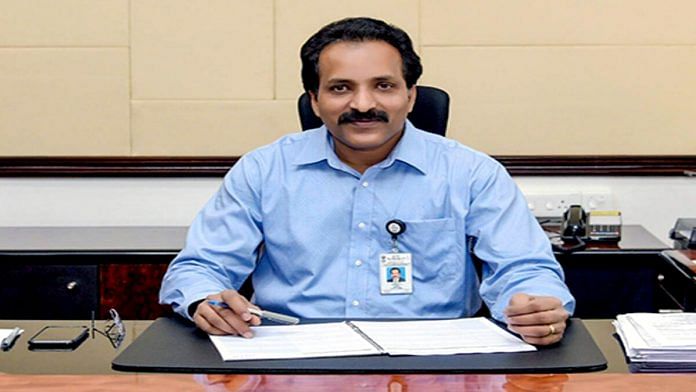New Delhi: What will it take for India to have its own Elon Musk, who is among the pioneers of private participation in space? Indian Space Research Organisation (ISRO) Chairman S. Somanath offered some suggestions Wednesday as he made a big push for the space agency to play a role in boosting India’s private space industry.
“The challenge that we have in front of us is that the knowledge that we have in ISRO needs to be transferred to the industry. Over the last 50 years, a certain amount of skill and capability has been developed at ISRO in terms of designing and making things,” Somanath said, adding that ISRO wasn’t a “business-centric organisation”.
“They do not know how to make money. But they know how to develop products,” he said, addressing an event at the India International Convention and Expo Centre in Delhi. “Some Elon Musk may still come up from India but the challenges [here] are much bigger.”
What India needs, he said, is more application-centric start-ups — that is, companies involved in applications that are directly relevant to the public — rather than launch-vehicle- and satellite-centric start-ups.
However, in order to expand India’s private sector success into the space industry, ISRO will have to provide knowledge support, he said.
India’s space sector currently contributes less than 2 per cent of the global $447 billion space industry, but has the potential to grow up to 50 per cent by 2047, he added.
“The space sector economy, which is today at about $447 billion, is expected to grow to $1.5 trillion. 50 per cent of that would be just 1.8 per cent of India’s projected GDP in 2047,” Somanath said.
Also Read: ‘Where’s the research?’ Why space institute IIST’s tailor-made graduates don’t stay at ISRO
ISRO’s helping hand
Taking space technology to the industry, Somanath said, requires a change in mindset. He cited the example of Musk’s spacecraft engineering company SpaceX.
The company, he said, became successful only because of the support it got from the National Aeronautics and Space Administration (NASA). “That does not mean that NASA became weak in the process,” he added.
ISRO, too, needs to create a system to share knowledge and technologies with industry and start-ups, which could, in turn, commercialise the products, Somanath said.
“The transfer of knowledge from ISRO to the industry is already happening. Many of our retired colleagues are already mentors of various start-ups and are helping them to go further,” he said.
The space sector will see a transformation in the next two decades as more and more people undertake space travel, he added.
“We [the space industry] will be looking at many areas, such as mining for rare earth metals, farming, space real estate, and hospitality among other things,” he said.
Expanding the space sector is possible only if ISRO shrinks to the role of a “technology enabler”, allowing the private industry to step forward and lead in the implementation of new technology, he said.
However, big companies remain hesitant about investing in the space sector, mainly because of the slow rate of returns, which is especially true in the case of companies involved in making launch vehicles, he added.
Turning India into space manufacturing hub, and ISRO’s role
As more private companies enter the space, Somanath said he saw NewSpace India Limited (NSIL) — ISRO’s commercial arm — moving away from just marketing ISRO’s launch vehicles and instead helping facilitate funding for space start-ups.
India, he added, should also become a global space manufacturing hub.
“Satellite production is something that can be done in India. I am already seeing some companies setting up manufacturing facilities in India [in the hope that] orders for the same will come,” he said.
This, like India’s IT boom, will help generate jobs, he added.
“The kind of boom we saw in the Indian IT sector, we will see the same benefit (from the space enterprise) in terms of the secondary effects in the industry, the job opportunities and all the chains of activities that are required here,” he said.
Meanwhile, ISRO will continue to focus on space exploration with projects such as Gaganyaan, Aditya L1, and Mars Orbiter Mission 2 in the pipeline, he added. In the future, he said, the industry and ISRO will have to work in tandem to develop new technologies.
“The way the younger generation has been working is entirely different from how ISRO has been working,” he added. “This is the beauty of it. If appropriately mentored by the older generation, a lot of space start-ups can build strong businesses.”
(Edited by Uttara Ramaswamy)
Also Read: Covid to space & missiles, these women scientists are rocking Indian science and how



